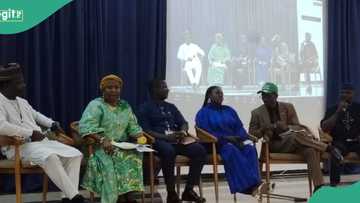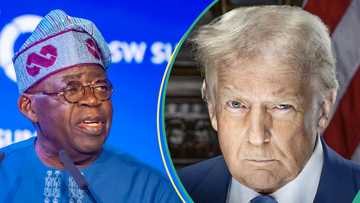Nigerian Independence Day history: All you need to know
Nigeria’s freedom from colonial rule is one of the most significant events in African history. Celebrated every October 1st, this day marks the birth of a new nation after decades of British control. Learning about Nigerian Independence Day history helps us understand the struggles, sacrifices, and triumphs that shaped the country’s journey to self-rule.
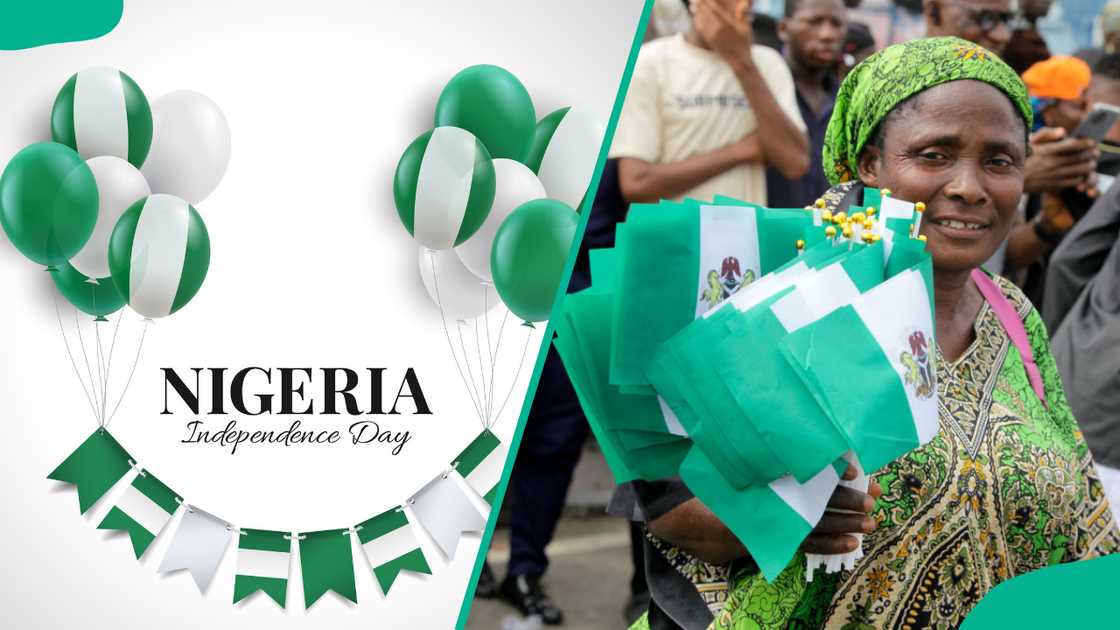
Source: UGC
TABLE OF CONTENTS
- Key takeaways
- Nigerian Independence Day history
- What is the history of independence in Nigeria?
- Pre-colonial Nigeria
- The advent of British colonial rule
- The struggle for independence
- The road to independence
- Who fought for Nigeria to gain independence?
- Who are the founding fathers of Nigeria?
- 64th Independence Day in Nigeria
- Facts about Nigeria's independence
- Frequently asked questions
- When is Independence Day in Nigeria?
- How old is Nigeria in 2025?
- What was Nigeria's original name?
- Who sold Nigeria to the British Empire?
- Who colonised Nigeria?
- Who colonised Nigeria before the British?
- How did Nigeria gain independence?
- How old is Nigeria since its independence?
- Who helped Nigeria gain independence?
- When did Nigeria become a republic?
- How old is Nigeria since 1960?
Key takeaways
- Nigeria gained independence from Britain on October 1, 1960.
- The event ended decades of colonial rule and marked the birth of a sovereign nation.
- Independence Day is celebrated annually with parades, cultural events, and national speeches.
- Nigerian Independence Day history reflects the struggles and unity that shaped the country’s freedom.
Nigerian Independence Day history
Nigeria's independence culminated decades of struggle and resistance against colonial rule. Like many African nations, Nigeria experienced long periods of European domination, which reshaped its cultural, political, and economic landscape.
What is the history of independence in Nigeria?
The history of independence in Nigeria is a journey of struggle, unity, and political reform. Nationalist leaders worked hard to end colonial control, leading to freedom on October 1, 1960. This date is now celebrated every year and forms the heart of Nigerian Independence Day history, Wikipedia page, and studies.
For students and researchers, the story is often explained through facts, a timeline, and essay formats. The timeline highlights key events such as the 1947 Richards Constitution, the 1953 motion for self-government by Anthony Enahoro, and the eventual independence in 1960.
These facts show that independence was not achieved overnight but through years of negotiation and reform. Today, Nigeria’s freedom is a symbol of national pride and a central part of its modern identity.
Pre-colonial Nigeria
Nigeria's history extends back to approximately 11,000 BC, with archaeological evidence suggesting earlier settlements. Throughout this time, various ethnic groups and civilisations developed across the region, each contributing to today's cultural diversity.
Prominent kingdoms, such as the Benin Empire, the Oyo Empire, and the Sokoto Caliphate, flourished independently, engaging in trade and cultural exchange with their neighbours.
Even before the arrival of British colonisers, coastal areas like Lagos had established trade connections with Europeans as early as the 1600s.
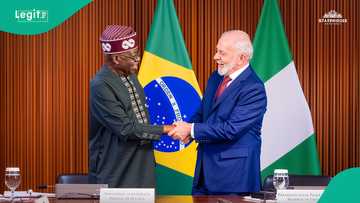
Read also
South-South diplomacy: What Tinubu’s Brazil visit means for Nigeria’s immediate economic needs
Initially, this trade primarily involved the exchange of slaves. However, with the abolition of the transatlantic slave trade, palm oil and other resources became significant commodities. Despite these interactions, the indigenous societies maintained control over their territories until the onset of British colonisation.
The advent of British colonial rule
The British expansion into Nigeria was gradual but determined. The annexation of Lagos in 1851 marked the beginning of direct British influence, which intensified when Lagos became a colony in 1861.
The scramble for Africa in the late 19th century saw European powers, including Britain, carving up the continent, leading to the establishment of protectorates. In 1884, Calabar was declared the capital of the Niger Coast Protectorate, remaining so until 1906.
The colonial consolidation continued with the fall of the Benin Empire in 1897. On January 1st, 1901, Nigeria officially became part of the British Empire, with territories unified under separate administrative regions: the Colony of Lagos, the Niger Coast Protectorate, and the Northern Protectorate.
The final amalgamation in 1914, which merged the southern and northern regions, formed today's Nigeria. The country's name was coined by British journalist Flora Shaw, who derived it from the River Niger.
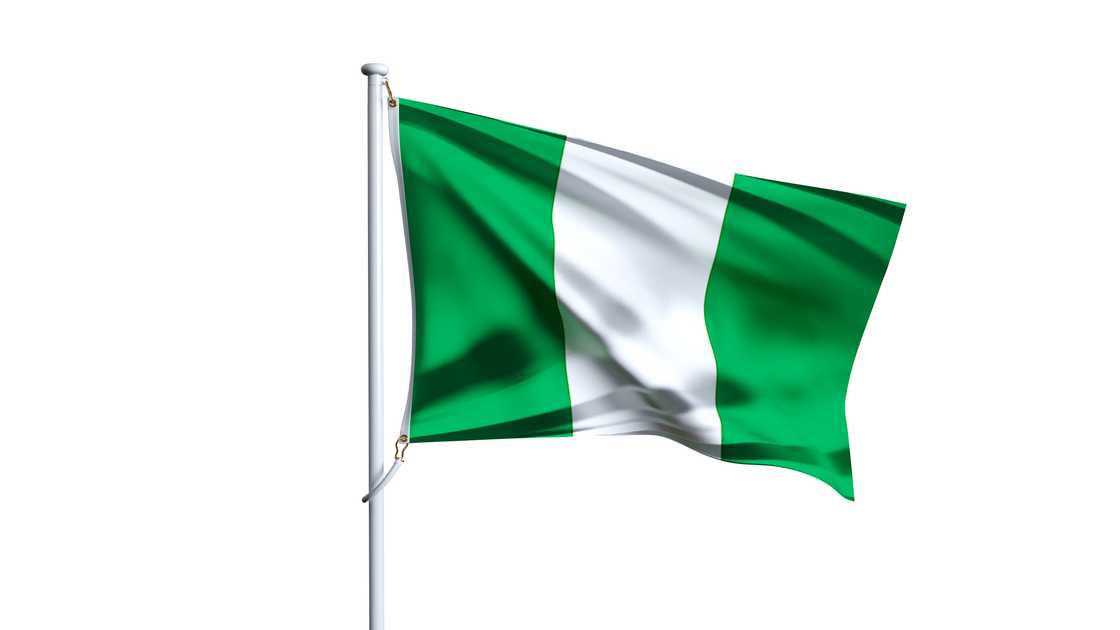
Source: Getty Images
The struggle for independence
The colonial era brought significant cultural and social changes, with European influences increasingly overshadowing local customs and traditions. Missionaries spread Christianity, and Western education became more widespread, contributing to a growing class of educated Nigerians who began to challenge colonial rule.
Nigerian nationalism gained momentum between 1922 and 1959, driven by dissatisfaction with British governance and an aspiration for self-determination.
Early nationalists like Herbert Macaulay laid the groundwork for future political activism. The emergence of influential figures, such as Nnamdi Azikiwe, Ahmadu Bello, and Obafemi Awolowo, further galvanised the independence movement.
To suppress the rising tide of nationalist sentiments, the British introduced new constitutions to appease the population. However, these measures only fueled the desire for complete independence. The push for self-governance intensified, with Nigerians uniting across ethnic and regional divides to demand an end to colonial rule.
The road to independence
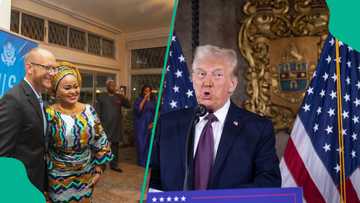
Read also
US embassy in Nigeria announces temporary closure of office, gives date, sends message to Nigerians
The British government finally conceded to these demands when, on October 27th, 1958, it was announced that Nigeria would gain independence. Transferring power involved significant negotiations, with Nigerians establishing their political structures and leaders.
When did Nigeria gain independence from Britain? On October 1st, 1960, Nigeria achieved its long-awaited independence. Dr Nnamdi Azikiwe became the country's first Indigenous Governor-General, while Sir Abubakar Tafawa Balewa assumed the position of Prime Minister.
Who fought for Nigeria to gain independence?
Nigeria’s independence was achieved through the efforts of visionary leaders who pushed for self-rule. These nationalists campaigned, negotiated, and inspired citizens to seek freedom from British colonial rule.
Who are the founding fathers of Nigeria?
The struggle for Nigerian independence involved many prominent figures who played crucial roles in the nationalist movement. Here are some of the key personalities who fought for Nigeria's independence:
- Nnamdi Azikiwe (Zik)
Often referred to as the "father of Nigerian nationalism," Nnamdi Azikiwe was a prominent political leader and one of the foremost advocates for independence.
As a journalist and politician, he used his influence to advocate for self-rule and serve as a voice for the aspirations of many Nigerians. His efforts contributed significantly to Nigeria's path to independence, and he later became the country's first President.
- Sir Ahmadu Bello
As the premier of Northern Nigeria, Ahmadu Bello was influential in the negotiations leading up to independence. He played a key role in ensuring that the interests of the Northern region were protected during the constitutional conferences that shaped Nigeria's future.
- Chief Obafemi Awolowo
Chief Awolowo, a major political leader from Western Nigeria, strongly advocated for regional autonomy and the rights of the Yoruba people. He was also a founding member of the Action Group political party, which championed independence and social reforms.
- Sir Abubakar Tafawa Balewa
As the first Prime Minister of Nigeria, Balewa was a central figure in the country's move towards independence. His diplomatic efforts and leadership were crucial in securing a peaceful transition from colonial rule.
- Herbert Macaulay
Known as the "father of Nigerian nationalism," Macaulay was one of the earliest advocates for self-governance. Through his activities in the Nigerian National Democratic Party (NNDP), he laid the groundwork for future nationalist movements.

Read also
Insecurity: Concerns as Defence HQ uncovers fresh activities of foreign terrorists, details emerge
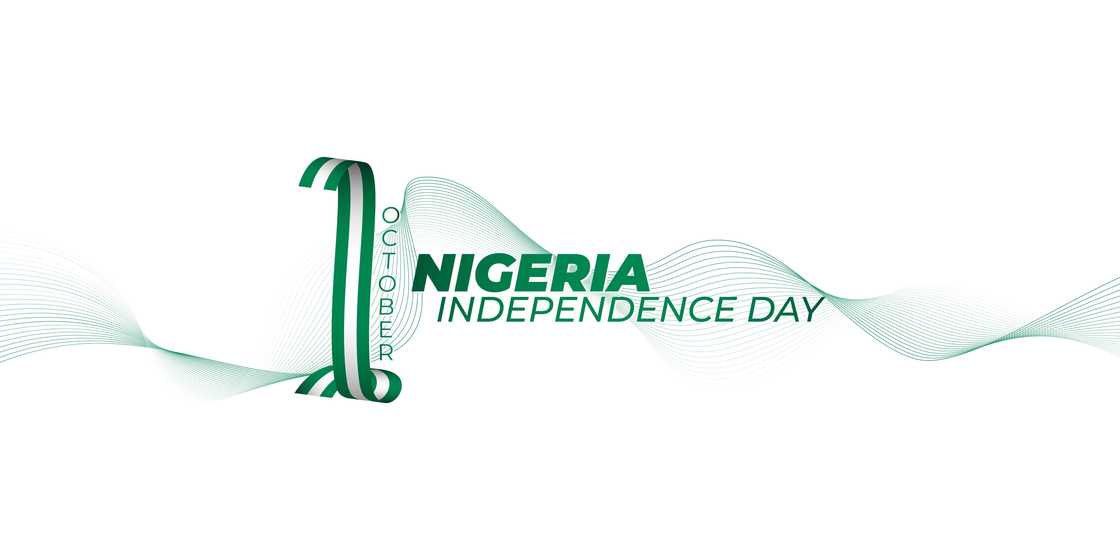
Source: Getty Images
64th Independence Day in Nigeria
In 2024, Nigeria celebrated its 64th Independence Day, marking 64 years of freedom from colonial rule. The celebrations are always filled with festivities, including parades, cultural displays, and speeches from government officials reflecting on the country's journey so far.
The theme of each year's Independence Day celebration often reflects the country's aspirations and current situation. Over the decades, the celebrations have been a time to reflect on the nation's socio-political and economic achievements.
Facts about Nigeria's independence
Here are some quick history facts about Nigeria's independence.
- Nigeria was under British colonial rule from the late 19th century.
- In 1914, the Northern and Southern Protectorates were merged to form the Colony and Protectorate of Nigeria.
- Nigeria gained independence from Britain on October 1st, 1960.
- Abubakar Tafawa Balewa became the first Prime Minister of independent Nigeria.
- Nnamdi Azikiwe was the first President of Nigeria, serving as a ceremonial head of state.
- Nigeria adopted a federal system of government, recognising the diversity of its ethnic groups.
- A new national anthem and flag symbolised the country's independence.
- Despite the celebrations, Nigeria faced significant challenges, including political instability, ethnic tensions, and economic difficulties in the years following independence.
- Nigeria experienced several periods of military rule, with coups and counter-coups disrupting political stability.
Frequently asked questions
Before diving into the details, many readers have common questions about Nigeria’s path to freedom and its national milestones. From how the country gained independence to when it became a republic, these FAQs provide clear answers about Nigerian Independence Day history and its lasting impact.
When is Independence Day in Nigeria?
Independence Day in Nigeria is celebrated annually on October 1st. The date marks the official handover of power from the British colonial authorities to Nigerian leaders in 1960.
How old is Nigeria in 2025?
As of 2024, Nigeria is 64 years old. The country gained independence on October 1, 1960.
What was Nigeria's original name?
Before British colonisation, the region that is now Nigeria was composed of various independent kingdoms and ethnic groups, each with its own unique names and identities. Before Flora Shaw suggested the name Nigeria, other proposed names included Royal Niger Company Territories, Central Sudan, Niger Empire, Niger Sudan, and Hausa Territories.
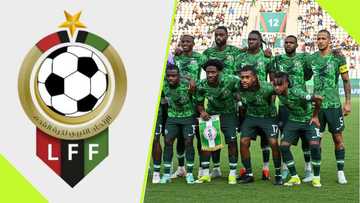
Read also
Libyan journalist criticise Nigeria for forfeiting AFCON qualifier clash following airport controversy
Who sold Nigeria to the British Empire?
George Goldie, the founder of the Royal Niger Company, which was headquartered in Lokoja, sold the Southern Nigeria Protectorate, including its land and people, to the British government for £865,000 in 1899.
Who colonised Nigeria?
Colonial Nigeria was under British rule from the mid-19th century until Nigeria gained independence on 1 October 1960. The British annexed Lagos in 1861 and later established the Oil Rivers Protectorate in 1884.
Who colonised Nigeria before the British?
Before British rule, Nigeria was not colonised by a single European power. Different parts of the region were influenced by early Portuguese traders in the 15th century, who controlled coastal trade for many years.
The Portuguese, Dutch, and later the French were active along the coasts, mainly for trade, especially in slaves and goods. However, it was the British who eventually established full colonial control in the 19th century, unifying the territory in 1914.
How did Nigeria gain independence?
Nigeria gained independence through peaceful negotiations with Britain rather than violent conflict. Nationalist leaders formed political parties, pushed for constitutional reforms, and demanded self-rule. By October 1, 1960, Britain officially granted Nigeria independence.
How old is Nigeria since its independence?
Nigeria became independent on October 1, 1960. From independence to 2025, the country is 65 years old. This age reflects its journey as a sovereign nation.
Who helped Nigeria gain independence?
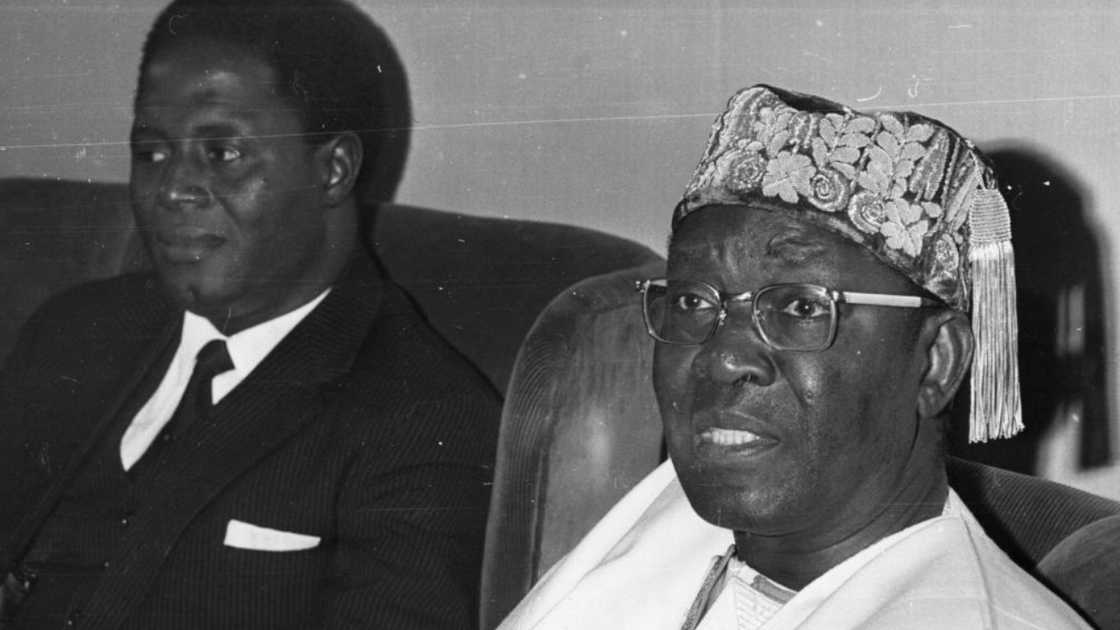
Source: Getty Images
Several nationalist leaders helped Nigeria gain independence. Key figures include Dr. Nnamdi Azikiwe, Sir Ahmadu Bello, Chief Obafemi Awolowo, and Chief Anthony Enahoro. Their political efforts and negotiations made independence possible.
When did Nigeria become a republic?
Nigeria became a republic on October 1, 1963. This meant that the British monarch was no longer the head of state, and Nigeria had its own president. Dr. Nnamdi Azikiwe became the country’s first president.
How old is Nigeria since 1960?
Since Nigeria gained independence in 1960, it is 65 years old in 2025. This calculation is based on the years that have passed since October 1, 1960.
Nigerian Independence Day history is more than just a date on the calendar—it represents unity, resilience, and national pride. From the declaration of independence in 1960 to today’s annual celebrations, it reminds Nigerians of their hard-won freedom. Knowing this history allows us to appreciate how far the country has come and the hopes it carries for the future.
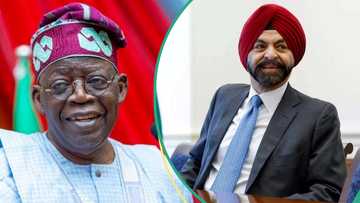
Read also
"The lessons are clear": World Bank mentions timeframe economic hardship will end in Nigeria
Legit.ng published an article with Happy Democracy Day wishes. Nigeria celebrates Democracy Day to commemorate the restoration of democratic governance in the country. The day has historical significance, marking milestones in Nigeria's journey towards democracy.
It is observed every year on June 12th. Importantly, sending your countrymen and loved ones happy Democracy Day wishes is a great way of marking the day.
Source: Legit.ng

Adrianna Simwa (Lifestyle writer) Adrianna Simwa is a content writer at Legit.ng where she has worked since mid-2022. She has written for many periodicals on a variety of subjects, including news, celebrities, and lifestyle, for more than three years. She has worked for The Hoth, The Standard Group and Triple P Media. Adrianna graduated from Nairobi University with a Bachelor of Fine Arts (BFA) in 2020. In 2023, Simwa finished the AFP course on Digital Investigation Techniques. You can reach her through her email: adriannasimwa@gmail.com

Kevin Omuya (Lifestyle writer) Kevin Omuya is a professional content writer with over three years of experience. At Legit.ng, he has contributed to extensive research on various topics such as celebrity news, fashion, and biographies. He has also worked as an editor and content creator at SportsCulture and CottageMed. In 2019, he graduated with a Bachelor of Arts in Journalism & Digital Media from KCA University. You can reach him through his email: komuya89@gmail.com


